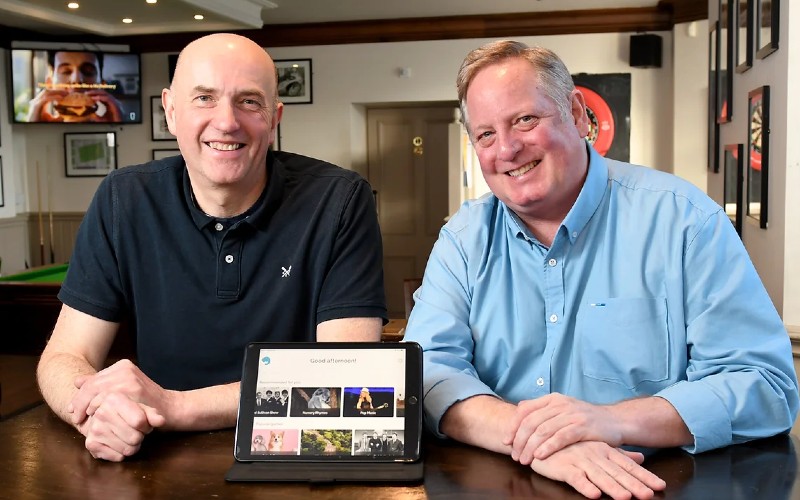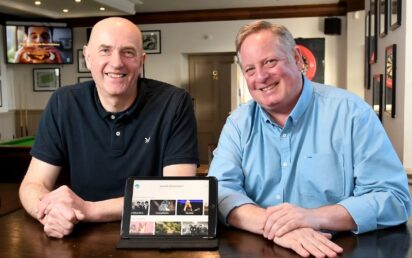It’s four years since a chat in a pub between mates Bruce Elliott and Peter Quayle changed the course of their lives – and potentially millions of people with dementia in the process.
“We were talking about how our elderly Mums loved looking at old photos and reminiscing,” recalled Elliott, a Canadian who has lived in the UK for more than 20 years.
The families of both men have been blighted by dementia so they decided to make a game using old photos for their mothers which became the inspiration for their business – Memory Lane Games.
Elliott added: “We started building an app for our Mums using topics that were nostalgic and fun. Then Covid struck and Memory Lane Games really took off.
“Today we have 3,000 different games in the app, which has been downloaded more than 90,000 times in 134 different countries.
“Our app has nothing to do with brain training. Our games are designed to trigger positive memories and stimulate conversations with family members.”
The games are based on jogging happy memories that can support people affected by cognitive decline.
Each game is based on a series of multiple choice questions on a range of subjects designed around the particular interests of the user.
Memory Lane Games employs 10 staff and has offices in the Isle of Man and Manchester, as well as a small presence in the US.
The dementia app recently won the ‘Judge’s Choice Award’ at a prestigious pitching event organised by Mayo Clinic and Arizona State University (ASU) MedTech Accelerator Program and has raised £1.4m in investment across three fund raises.
Elliott said: “The questions in the games could relate to particular cities, football clubs or pubs. People can even build their own games with their own photos. That’s how personalised we can make it.”
Memory Lane Games recently pivoted into becoming a SaaS-based business, selling licenses to care homes in the US, UK and Canada.
The games are also used by carers to de-escalate agitation and aggression in patients.
Memory Lane Games can be incorporated into personal care plans while clinical trials conducted found that 92 per cent of carers felt the app made users feel relaxed.
“We’re simple but scalable,” explained Elliott. “A lot of people with dementia have become withdrawn, especially after Covid, and they need to rebuild their social resilience.
“We focus on getting people talking again and we do that by hyper localised content.”
Memory Lane Games recently also won an £80,000 share of the £4.2m Longitude Prize on Dementia and is targeting the US market in particular for growth.


